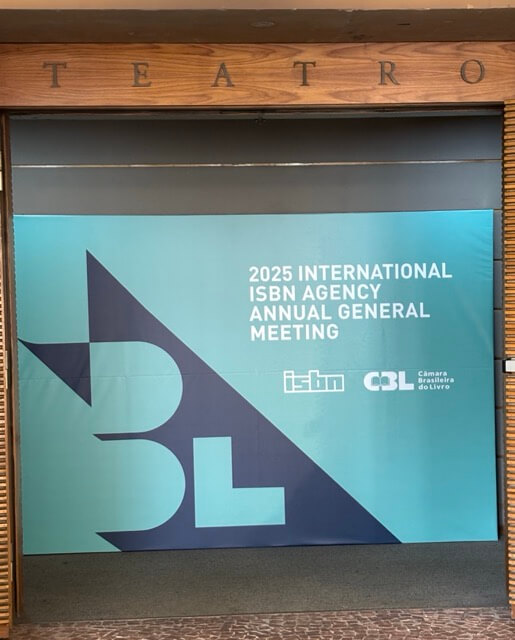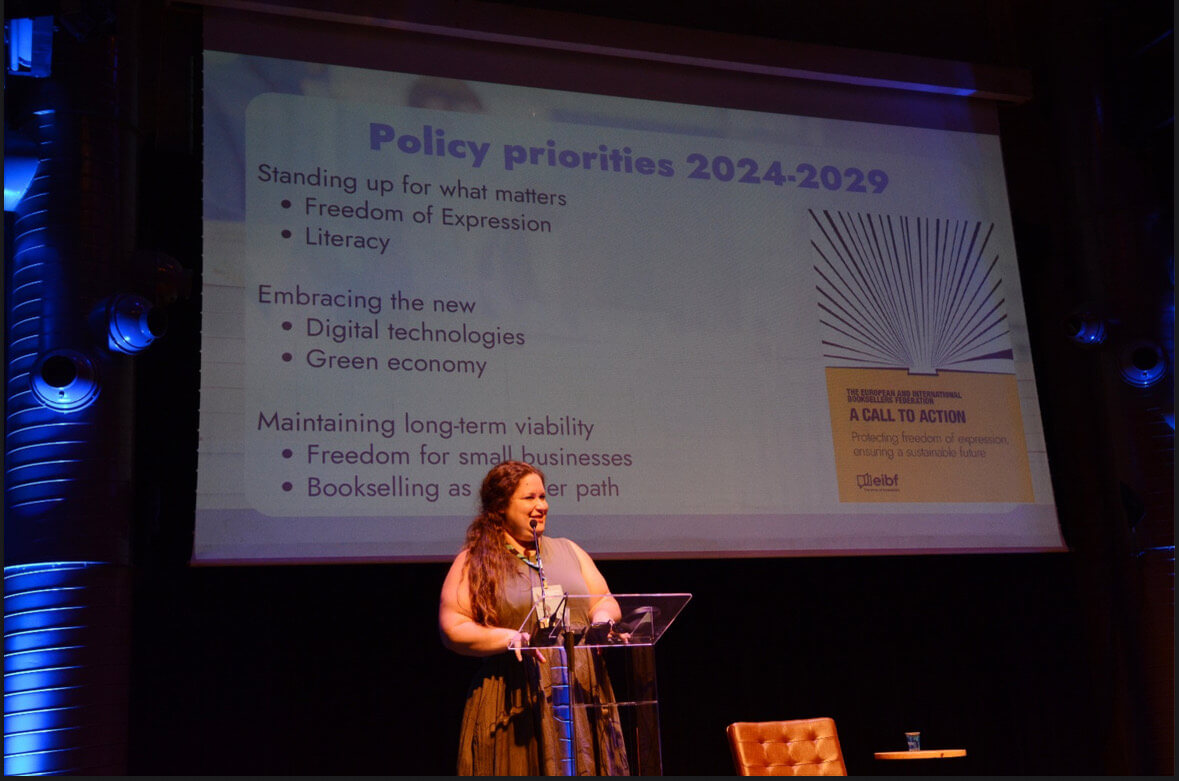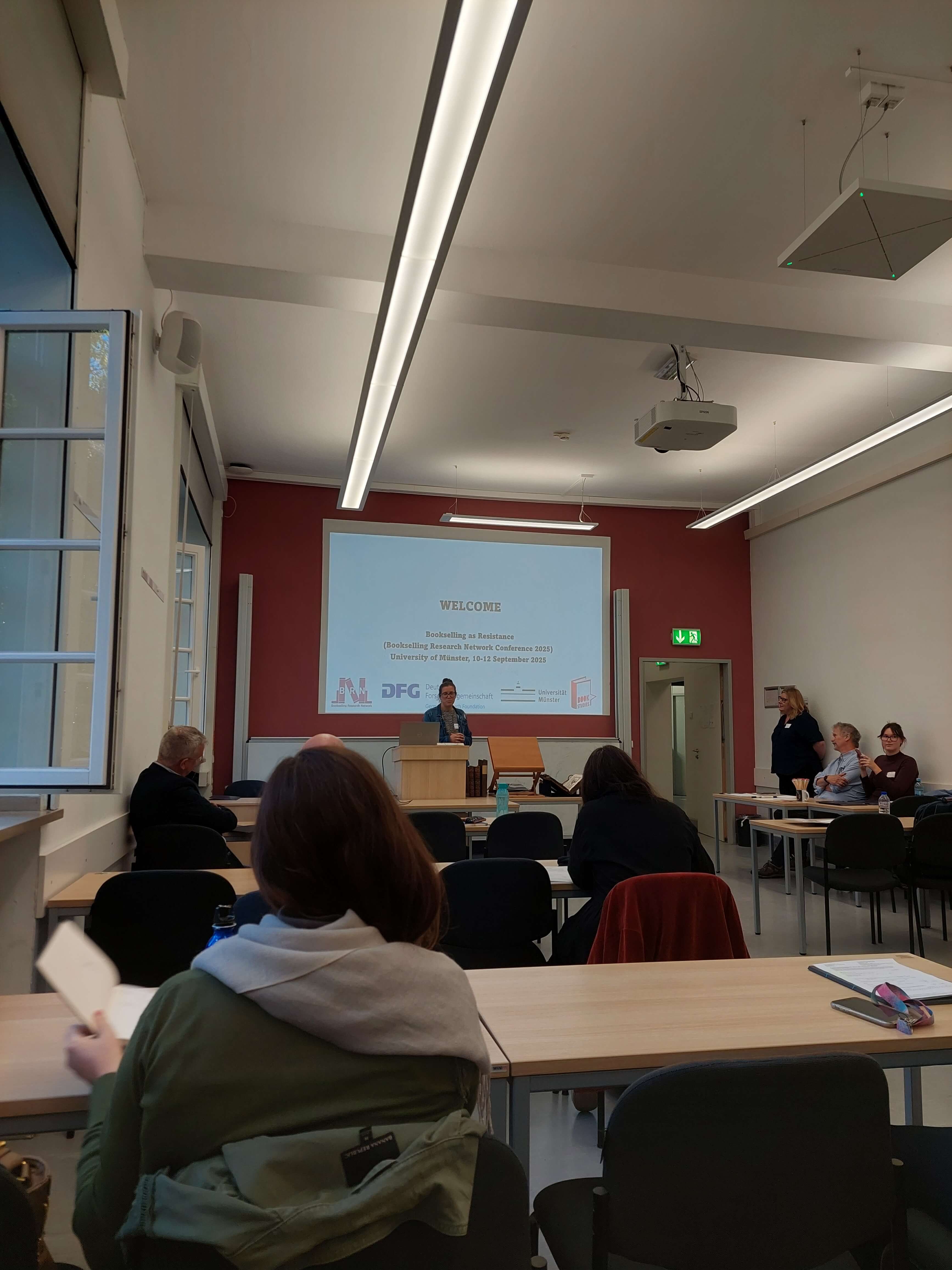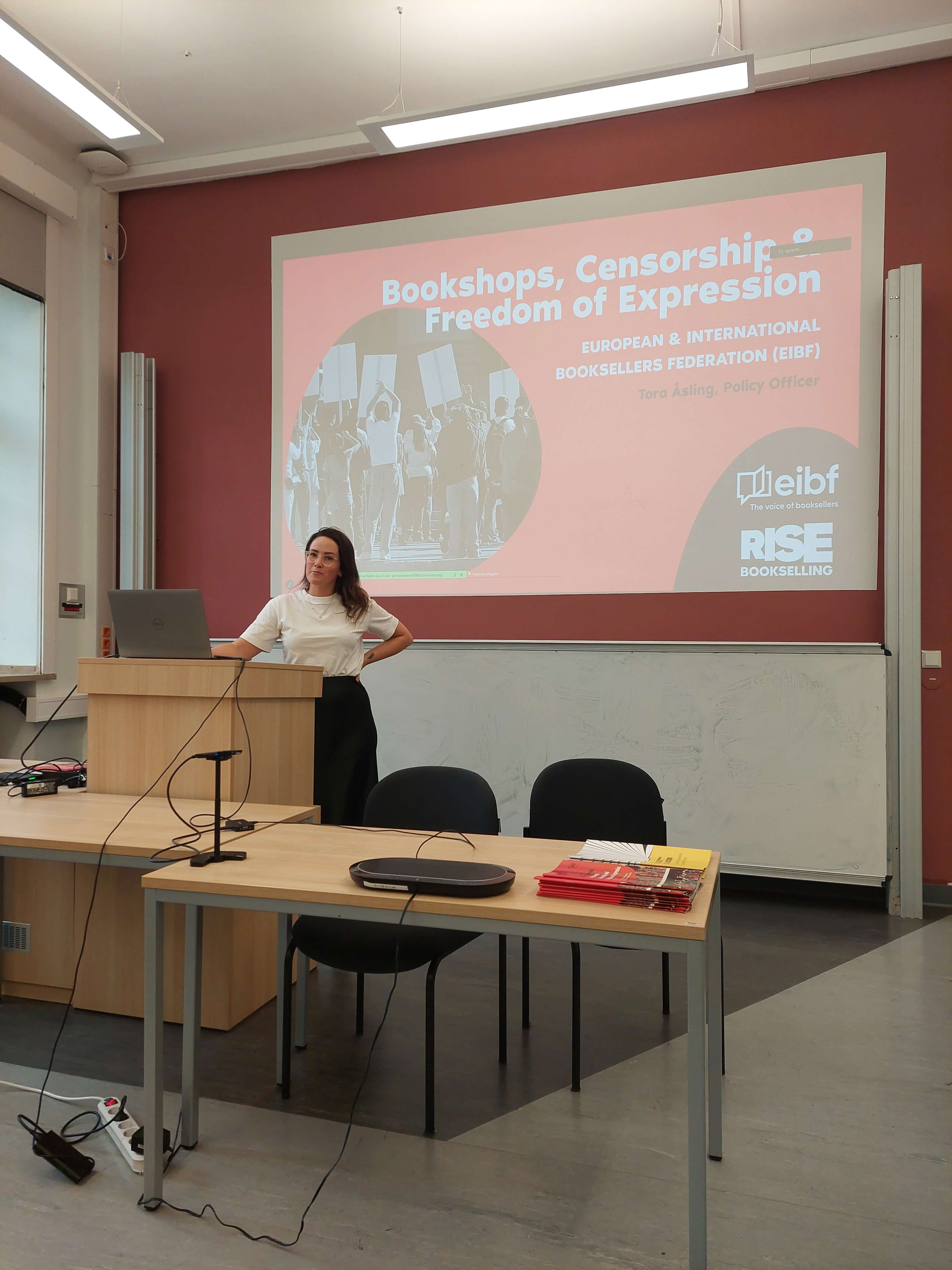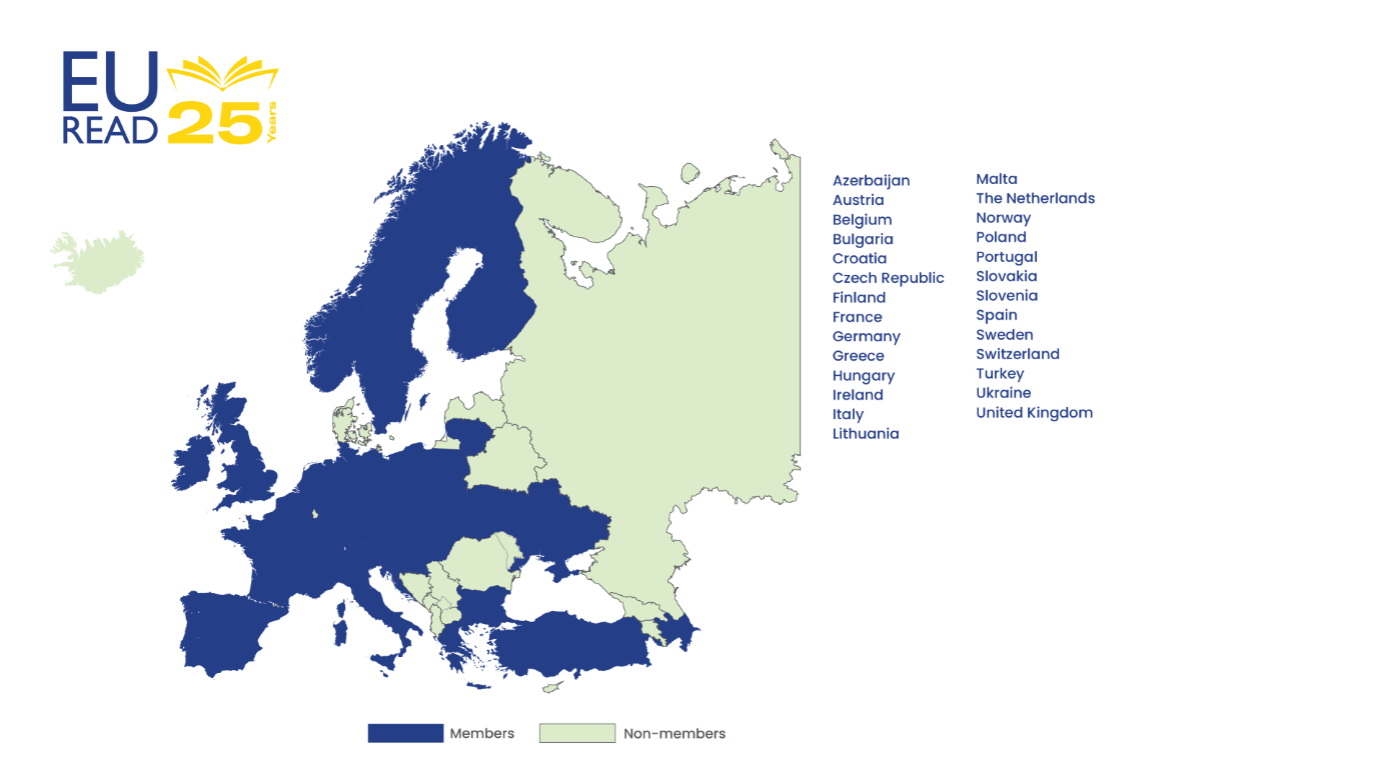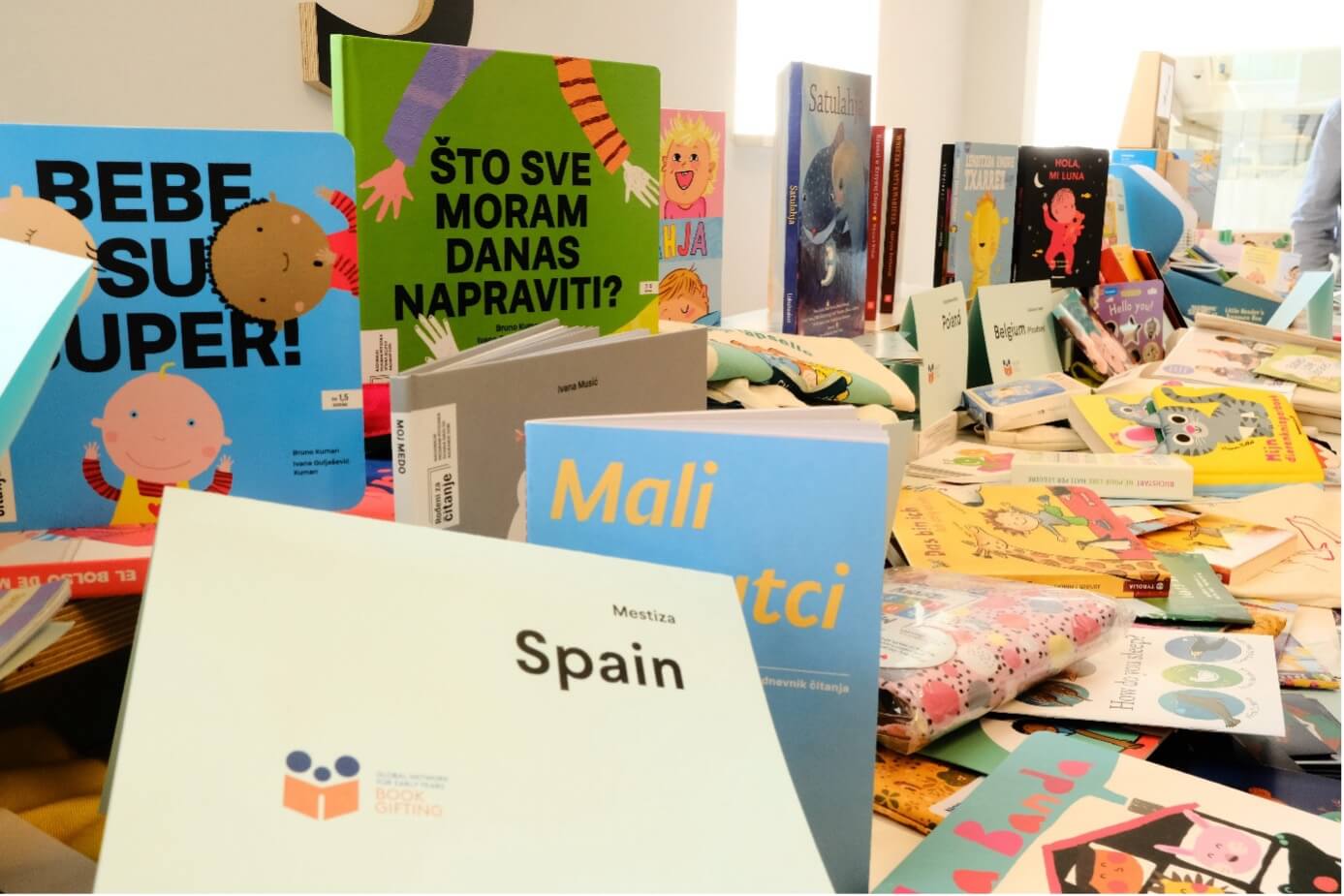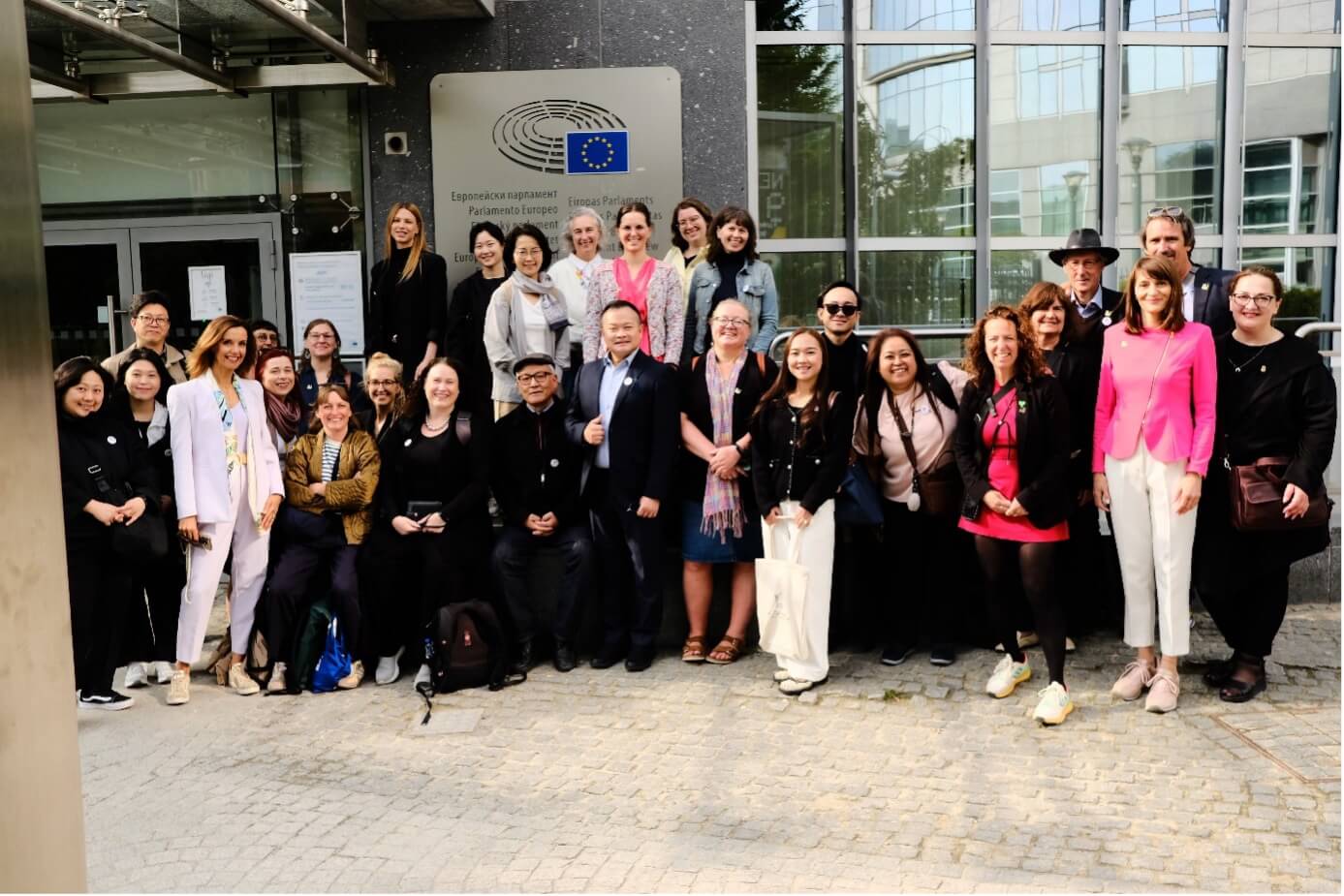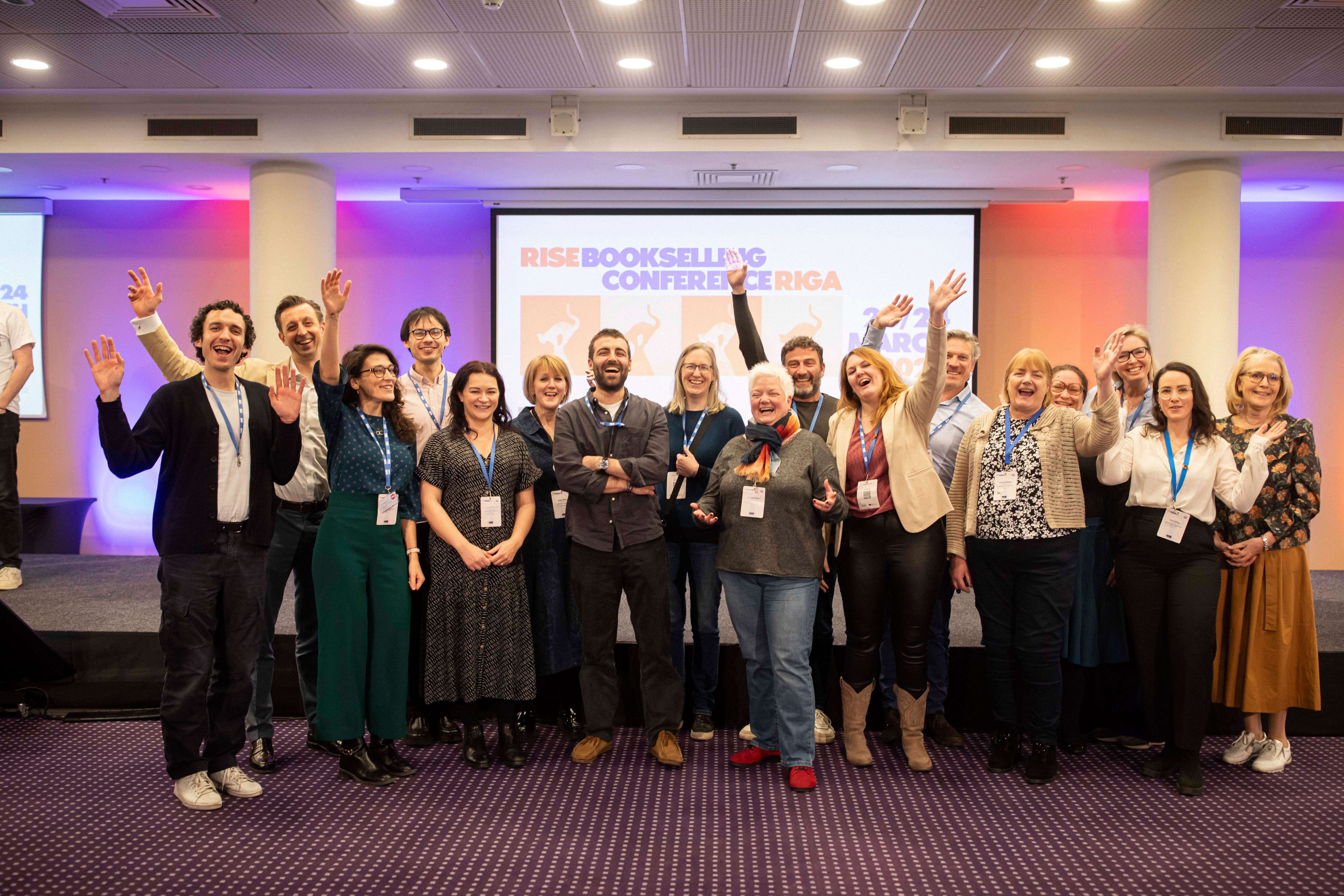Julie Belgrado to step down as EIBF Director

After more than ten years of dedicated service to the European and International Booksellers Federation (EIBF), Julie Belgrado has informed the organisation of her decision to step down from her role as Director to become the Chief Executive Officer of the Federation of European Screen Directors (FERA).
Her departure marks the conclusion of a remarkable chapter in the federation’s history and the beginning of a new phase of development. Throughout her decade at EIBF, including seven years as Director, Julie has played a central role in guiding the federation through a period of growth, transformation and achievement. Under her leadership, EIBF strengthened its presence in European cultural policy and ensured that the voice of booksellers was heard at the highest political levels. She oversaw the expansion of the Secretariat in Brussels, led the launch of the Creative Europe–funded RISE Bookselling network, and fostered collaboration among bookseller associations across Europe and beyond. Julie also championed initiatives promoting literacy, sustainability and resilience within the bookselling sector.
Her tenure has been characterised by openness, collaboration and innovation, and by a deep conviction that booksellers thrive when they connect, share knowledge and stand together.
Reflecting on her decision, Julie Belgrado said:
“Over the past years, EIBF has been much more than a job to me. It’s been a place of learning, passion, and growth—where I was trusted to try new ideas, supported to bring them to life, and encouraged to share knowledge with others. I’m proud of the legacy I leave behind, and grateful for the extraordinary commitment and support of EIBF members, especially the Executive Committee. Despite challenges along the way, I take with me wonderful memories: inspiring encounters across the globe, the passion and kindness of booksellers, their resilience, creativity, and strong sense of community. It has been an honour and privilege to represent their voice over the past ten years and ensure they are heard where it matters most.”
Fabian Paagman, President of EIBF, commented: “On behalf of the Executive Committee and our entire network, I want to express my deepest gratitude to Julie for her exceptional leadership, vision and dedication over the past decade. She has strengthened the role and visibility of EIBF at European and international level, while always putting booksellers at the heart of our mission. We are sad to see her go, but also proud of what has been achieved under her guidance, and we wish her every success for the future.”
In the coming weeks, the Executive Committee will launch the process of appointing a new Director. During the transition, Julie will support the handover to ensure continuity and stability.
EIBF remains deeply committed to fostering connections among booksellers, promoting best practices, and advocating for a thriving, diverse and sustainable bookselling ecosystem in Europe and internationally. With new leadership, the organisation will continue to build on Julie’s legacy and take the opportunity to further develop its mission and ambitions.


